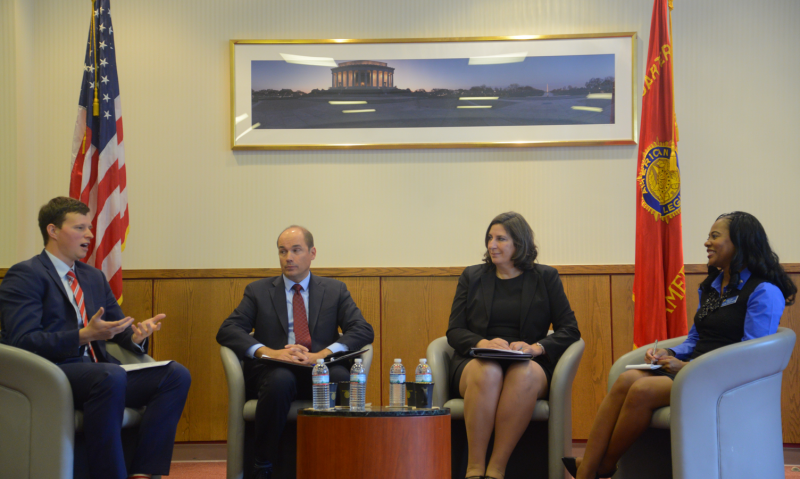
Legion kicks off series of panel discussions
The American Legion and the Harriet Fulbright Institute hosted a panel discussion that focused on international relations and foreign affairs issues for the next administration.
Moderated by Joshua Walker of the Harriet Fulbright Institute, the discussion on Tuesday at the Legion's Washington, D.C., office, also included Scott Shiller, deputy chief of staff at House of Representatives, Brenda Shaffer, Georgetown University professor and former advisor to Israel’s Ministry of Energy and Water, and American Legion National Security Division Director Rhonda Powell.
The event, which is the first of a series scheduled through next year, was open to the public and attended by local student veterans, Washington professionals and Legionnaires. Additionally, the forum was available via live video streaming on the Legion's Facebook page for people who couldn’t attend.
"By welcoming policy and security experts in, we are honored to establish The American Legion D.C. headquarters as a place where Legionnaires and distinguished guests can come together to discuss the future of our country," said Paul E. Dillard, chairman of the Legion's Veterans Employment & Education Commission.
Powell, a decorated U.S. Army combat veteran and reservist, said, “It was an honor to speak to young professionals interested in foreign affairs policy issues facing the next U.S. presidential administration. I am excited about our collaboration initiatives, and I look forward to many more in the upcoming future.”
The Harriet Fulbright Institute is a nonprofit organization that develops the next generation global leaders through education, research and leadership programs. Gokhan Coskun, the chief executive officer of the Harriet Fulbright Institute, said he is excited for the opportunity to have these intelligent conversations with local leaders that are available to the public.
“The event was really great, especially bringing different perspectives to the table, including security, international relations and the economy," Coskun said. "Not only did we have experts of the respective topics, but also professionals from those fields asking questions and participating in a two-way conversation.”
